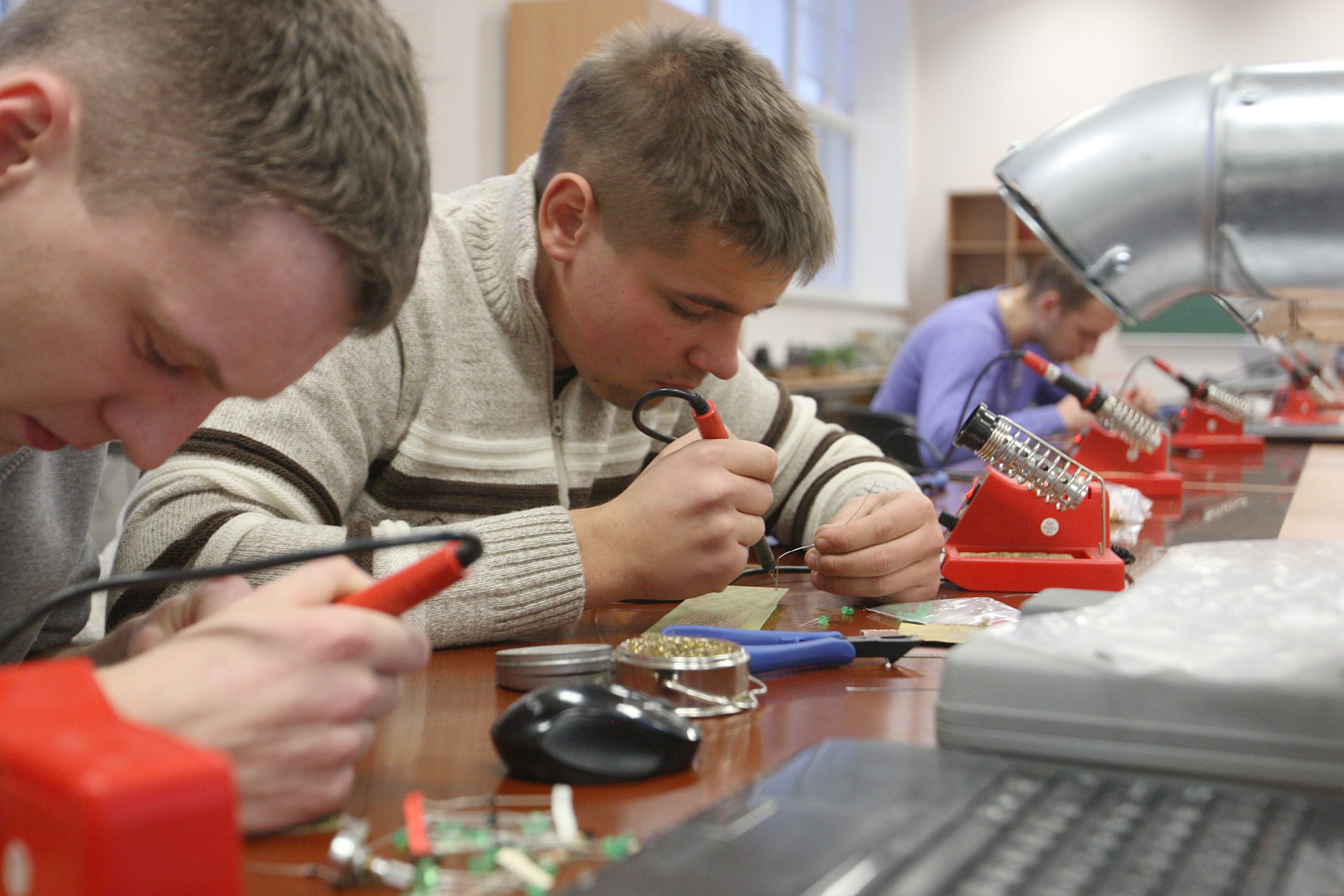Drone Engineering

| Drone Engineering | |
| State code | 6531EX070 |
| Faculty | Technical Faculty |
| Study field | Transport Engineering |
| Qualification | Professional Bachelor of Engineering Sciences |
| Form and duration of studies | Full –time studies – 3 years |
| Credits | 180 |
| Study plans | Full-time study plan enrolling in 2025 |
Career Prospects
To prepare competitive, highly qualified professional Bachelor of Engineering specialists for the labor market, capable of developing, constructing and optimizing drones and their control systems for various purposes, integrating equipment, solving engineering problems and implementing innovative solutions in the field of transport engineering.
Learning Outcomes
You will be able to:
- Explain the general regularities and laws of mathematics, physical sciences, technological sciences, mechanics, materials science, electronics and information technologies.
- Explain the essential concepts of drone engineering, demonstrate basic and up-to-date transport engineering knowledge about drone structures, their operating and operating principles, structural and operational materials.
- Describe the multi-directionality of transport engineering sciences and the possibilities of applying knowledge of other sciences to engineering solutions.
- Apply drone engineering process and product design methods according to defined requirements, adapt scientific achievements in the areas of control, electrification and automation of drones and their systems.
- Demonstrate basic and up-to-date knowledge of the engineering sciences study field and apply it in practical situations.
- Use digital manufacturing principles, cloud manufacturing processes, the Internet of Things, business management systems and augmented reality to solve engineering problems or create innovative solutions.
- Systematize and interpret the information necessary for drone engineering studies.
- Perform the necessary experiments to solve drone engineering tasks, analyze the results obtained and present conclusions.
- Propose practical solutions to drone engineering science problems.
- Implement drone engineering projects in working groups and present logically based conclusions based on the principles of circular economy, artificial intelligence, industrial digitalization, ethical, environmental, commercial, operational organization, occupational safety and health circumstances and the concept of sustainability.
- Analyze drone engineering processes and products, explain and interpret the results obtained.
- Design drone engineering components or systems by selecting and adapting appropriate methods, experimental and production equipment.
- Examine design methodologies, apply specialized software for process analysis and data management, designing drone engineering processes and products according to established technical, economic and environmental requirements.
- Examine engineering activity projects, guided by the principles of project execution and management.
- Demonstrate practical skills in working with equipment used in drone engineering.
- Solve engineering problems individually and in a team.
- Communicate with the engineering community and the general public in correct Lithuanian and at least one foreign language.
- Cooperate effectively with specialists from various fields to achieve common professional goals.
- Evaluate the impact of engineering decisions on society and the environment, adhere to professional ethics and engineering standards, and understand responsibility for the results of engineering activities.
- Critically evaluate the importance of lifelong learning and plan personal development directions.
Full-time study plan
(for entrants in 2025)
| 1st semester (30 credits) | ||
| Compulsory Subject | Credits | Evaluation* |
| Business Communication | 3 | P |
| Mathematics | 6 | E |
| Physics | 3 | P |
| Engineering Mechanics | 6 | P |
| Fundamentals of Drone Engineering | 6 | E |
| Foreign Language | 3 | P |
| Alternative Subjects | Credits | Evaluation* |
| Sociology | 3 | E |
| Psychology | 3 | E |
| Sustainable Development | 3 | E |
| 2nd semester (30 credits) | ||
| Compulsory Subject | Credits | Evaluation* |
| Physics | 3 | E |
| Engineering Design | 6 | P |
| Computer Modelling | 6 | P |
| Electronics | 3 | E |
| Project Management | 3 | P |
| Foreign Language | 3 | E |
| Technological 1 Practice | 6 | P |
| 3rd semester (30 credits) | ||
| Compulsory Subject | Credits | Evaluation* |
| Law | 3 | E |
| Programming | 6 | P |
| Materials Engineering | 3 | E |
| Technical Measurements | 3 | E |
| Electric Drives | 6 | E |
| Technological 2 Practice | 6 | P |
| Optional subject** | Credits | Evaluation* |
| Optional subject | 3 | P |
| 4th semester (30 credits) | ||
| Compulsory Subject | Credits | Evaluation* |
| Sustainable Environment and Human Safety | 3 | E |
| Applied Research | 3 | P |
| Microprocessors | 6 | E |
| Communication Systems and Remote Control | 6 | E |
| Internal Combustion Engines | 3 | E |
| Technological 3 Practice | 6 | P |
| Optional subject** | Credits | Evaluation* |
| Optional subject | 3 | P |
| 5th semester (30 credits) | ||
| Compulsory Subject | Credits | Evaluation* |
| Drone Dynamics | 6 | P |
| Automatic Control Systems | 6 | E |
| Navigation and Positioning Systems | 6 | E |
| Legal Regulation of Drones | 3 | E |
| Drone Design | 3 | P |
| Production Practice | 6 | P |
| 6th semester (30 credits) | ||
| Compulsory Subject | Credits | Evaluation* |
| Engineering economics | 3 | P |
| Drone Design | 3 | P |
| Energy management systems | 3 | E |
| Final Practice | 6 | P |
| Final Project | 12 | FP |
| Optional subject** | Credits | Evaluation* |
| Optional subject | 3 | P |
** Optional subjects are freely selectable subjects from the list of predefined subjects.
*Evaluation :
E – Exam;
P – Project;
FP – Final Project.